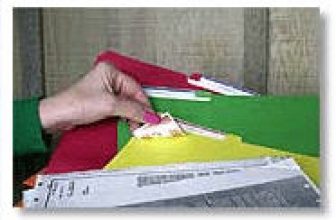
RFID technology can provide tracking records of red wine storage
[ad_1]
If it is said that the unrestrained aroma, rich taste and strict quality control have made Bordeaux, France, as a century-old wine capital; then Hong Kong, with tax-free freedom and a unique blend of Chinese and Western cultures, has become a world wine in just three years The most important trade and auction center on the territory, the reputation of “Oriental Bordeaux” got its name.
The annual Hong Kong Food and Wine Parade was unveiled on the night of the 27th at the West Kowloon Waterfront Promenade. Compared with previous years, the exhibitors exhibited more wines, more mellow wines, and wine prices continued to hit new highs. According to the organizer, Hong Kong citizens and tourists will experience 211 kinds of wines and nearly a hundred Chinese and Western cuisines from 19 countries and regions around the world, and enjoy a gluttonous feast. Among them, the 1869 top Lafite introduced by Bordeaux, France, sold for as high as HK$100,000 each.
This wine and delicacy parade also kicked off the November “Hong Kong Wine and Delicacy Month” event. In the next month, various food and wine promotion activities will be held in different food districts in Hong Kong, including street carnivals and international food and music festivals to be held successively in Lan Kwai Fong and Stanley Beach in Central.
At the opening ceremony, Hong Kong’s Financial Secretary Tsang Junhua said that Hong Kong people’s awareness of wine is increasing, which has further promoted the rapid development of Hong Kong’s wine trade in a tax-free environment. He revealed that the total value of Hong Kong’s wine imports in the first eight months of this year reached 6.6 billion Hong Kong dollars, an increase of 65% over the same period last year. Among them, France took the lead, accounting for about two-thirds of Hong Kong’s wine imports. The total trade volume with Hong Kong rose sharply in just three years. Times.
According to government statistics, a total of 22 wine auctions have been completed in Hong Kong since January this year, involving a total of 1.3 billion Hong Kong dollars, which has surpassed the total auction total of last year. Hong Kong will remain the world’s largest wine auction center without any suspense. Sotheby’s even successfully sold three Bordeaux Lafites at a world record unit price of 1.8 million Hong Kong dollars in October last year.
In contrast, wine auction prices in the United States fell by 4.6% in the third quarter, and the premium wine index of the London International Wine Exchange plunged 20% from its peak price in the summer of 2008. Industry insiders expect that in the next ten years and beyond, Global wine sales will be driven by Asia. The global wine trading center has quietly moved eastward.
In February 2008, Hong Kong decided to abolish import tariffs on wine, reducing it from the original 40% to zero. As it does not levy any value-added tax or goods and services tax, Hong Kong has become the first duty-free port for wine in the world’s major economies. In contrast, each bottle of wine imported from mainland China is subject to a tariff of 45%; even in the United Kingdom, tariffs and value-added tax are collected, which is approximately 42% of the value of the wine.
Duty-free brings business opportunities, and quality determines life. Tsang Junhua pointed out that with the assistance of the government, the industry and the Hong Kong Quality Assurance Agency launched the wine storage management system certification program in December 2009, which has now been further extended to retail, drinking and transportation. Strict guarantees are provided for wine storage facilities that meet internationally recognized standards.
The rise of the wine storage industry has attracted the participation of large real estate developers. Hong Kong listed company Xingsheng Creation is one of the pioneers. The wine collection built by the company opened in October 2010. This wine cellar is located in Sha Tin District, adjacent to the largest racecourse in Hong Kong. It can store 5000 boxes of aged wines, adopts a radio frequency identification system (RFID), and can provide tracking records of wine storage. The company’s marketing manager revealed that in order to increase production capacity, the company plans to expand in 2012, hoping to double the reserves to meet the needs of local collectors and international traders.
[ad_2]



